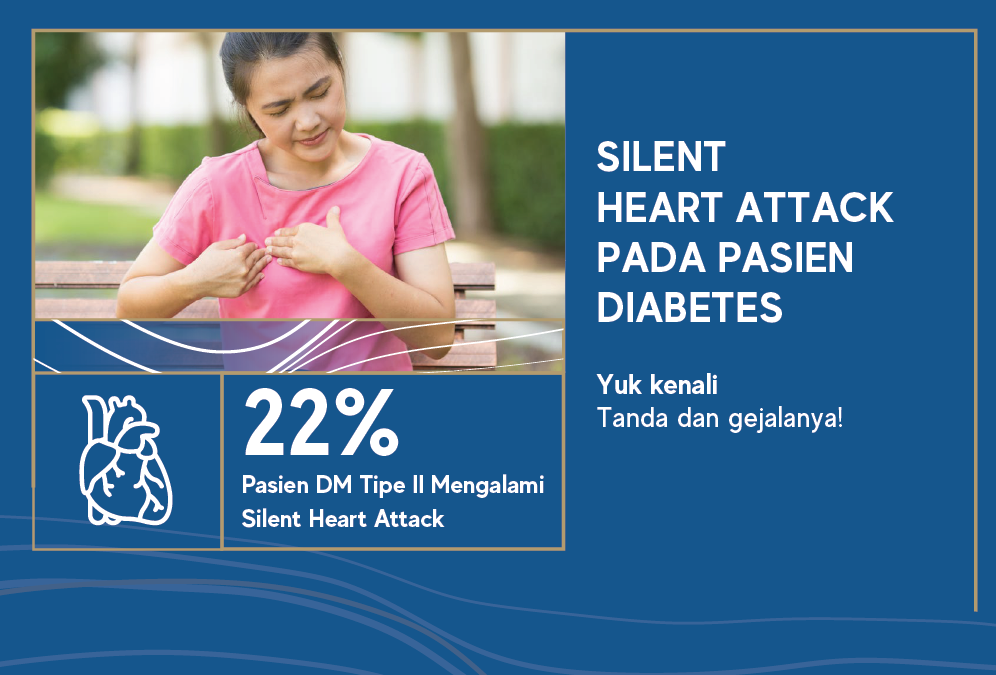Silent Heart Attack in Diabetic Patients
Diabetes Mellitus (DM) is a chronic metabolic disease caused by insulin deficiency or resistance, characterized by an increase in blood sugar levels. A person can be said to be suffering from diabetes if he or she exhibits classic symptoms of DM (polydipsia, polyphagia, and polyuria), accompanied by a fasting blood sugar level of 126 mg/dL or above, or a blood sugar level equal to or greater than 200 mg/dL. One of the major complications of DM is cardiovascular disease, including heart attack. In DM sufferers, a heart attack is commonly known as a silent heart attack.
Silent heart attack is a heart attack with minimal or no chest pain in DM sufferers. Data from the Detection of SMI Diabetic Subject (DIAD) in 2014 reported that 22% of patients with type 2 diabetes mellitus had experienced a silent heart attack. One of the factors that play an important role in increasing the risk of silent heart attack in DM sufferers is neuropathy, which is a minor complication of DM. Neuropathy is a disorder of the nervous system which can occur throughout the body, including the heart.
Cardiac autonomic neuropathy is a disorder of the autonomic nervous system in the heart that has the potential to cause disruption to the pain receptors. This will alter the pain threshold sensitivity, which in turn affects the quality of chest pain due to heart attacks in DM sufferers.
Unlike the typical chest pain in a heart attack that is located on the left side of the chest, feels like being crushed or squeezed, and radiates to the neck, jaw, back, shoulders, and to the left arm; silent heart attacks have symptoms that are more difficult to assess. The four signs and symptoms found in a silent heart attack are:
- Discomfort in the middle of the chest that lasts for several minutes and comes and goes
- Discomfort in the upper body, such as the neck, jaw, shoulders, back, and arms
- Heavy breathing before or at the same time as the chest discomfort
- Cold sweats, accompanied by nausea or dizziness
If you experience the complaints above, immediately contact the nearest health services and ask for help from the people around you to assist you.
References

